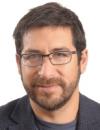Dr. Fernando O. Mardones
Senior Lecturer in One Health and Aquaculture

- Division of Global Agriculture and Food Systems
- Royal (Dick) School of Veterinary Studies
Contact details
- Email: fmardone@ed.ac.uk
Address
- Street
-
Division of Global Agriculture and Food Systems
Royal (Dick) School of Veterinary Studies
University of Edinburgh
Easter Bush Campus - City
- Midlothian
- Post code
- EH25 9RG
Background
Fernando is a veterinarian and epidemiologist specializing in aquatic animal health, epidemiology, and sustainable aquaculture. He is currently a Senior Lecturer in One Health and Aquaculture at the Global Academy of Agriculture and Food Systems, part of the Royal (Dick) School of Veterinary Studies at the University of Edinburgh. His work focuses on understanding and managing infectious diseases in farmed aquatic species, improving disease surveillance, and promoting sustainable practices in global aquaculture.
He began his career as a fish health veterinarian in southern Chile, working closely with salmon farmers to address emerging disease challenges. This experience led him to pursue a Master of Preventive Veterinary Medicine (MPVM, 2007) and later a PhD in Epidemiology (2013) at the University of California, Davis. During his time at UC Davis, he worked at the Center for Animal Disease Modeling and Surveillance (CADMS), developing mathematical models and risk assessment tools to improve disease control in livestock and aquaculture. His PhD research focused on the epidemiology of Infectious Salmon Anemia Virus (ISAV) in Chilean salmon farms.
Before joining the University of Edinburgh, Fernando was an Assistant Professor at the Pontifical Catholic University of Chile (PUC), where he played a key role in establishing One Health initiatives, leading research on aquatic epidemiology, and training students in quantitative epidemiology. He has also worked as a consultant for the Food and Agriculture Organization (FAO), advising on aquatic disease surveillance, biosecurity, and antimicrobial use in aquaculture.
His research integrates epidemiology, ecology, and data science to develop better disease prevention and control strategies. He has worked on diseases affecting salmon, tilapia, and shrimp, tackling issues such as antimicrobial resistance, climate change impacts, and sustainable food production. His work has influenced policy and disease surveillance strategies in Chile, Latin America, and beyond.
Fernando is passionate about teaching and mentoring, and he actively collaborates with scientists, veterinarians, and policymakers worldwide to strengthen aquaculture sustainability and food security. He is also involved in livestock health initiatives for small farmers, particularly in regions affected by climate change.
At the University of Edinburgh, he is developing a teaching and research program in One Health and Aquaculture, working across disciplines to address global food security, aquatic animal welfare, and planetary health.
Qualifications
2013 Doctor of Philosophy in Epidemiology, School of Veterinary Medicine, UC Davis, USA
Area of emphasis: Epidemiological methods and biostatistics.
2007 Master of Preventive Veterinary Medicine (MPVM), School of Veterinary Medicine, UC Davis, USA.
2004 Médico Veterinario, Facultad de Ciencias Veterinarias y Pecuarias, Universidad de Chile, Chile.
Open to PhD supervision enquiries?
Yes
Current PhD students supervised
Benjamin Diethelm-Varela (UC Chile)
Patricia Mora-Salas (UC Chile)
Past PhD students supervised
Manuel Lepe-Lopez
Mario Alvarado-Rybak
Research summary
I'm passionate about applying epidemiological methods to improve animal health, especially in aquaculture systems like salmon, tilapia or shrimp farming. My work is deeply rooted in the One Health approach, connecting the health of animals, people, and the environment. I’m especially interested in:
-
Understanding how diseases spread in aquaculture and fisheries
-
Using spatial analysis, disease modelling and data-driven tools to study outbreaks
-
Exploring innovative and sustainable solutions for disease control
-
Contributing to interdisciplinary research that supports better decision-making in food systems
